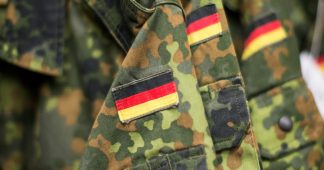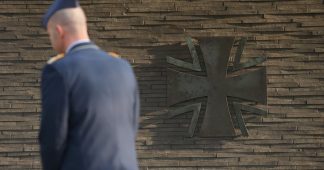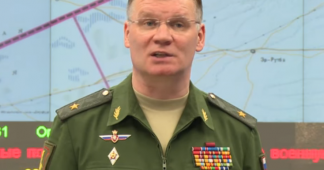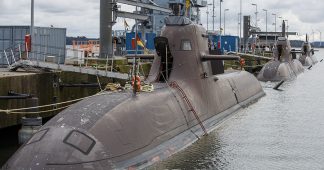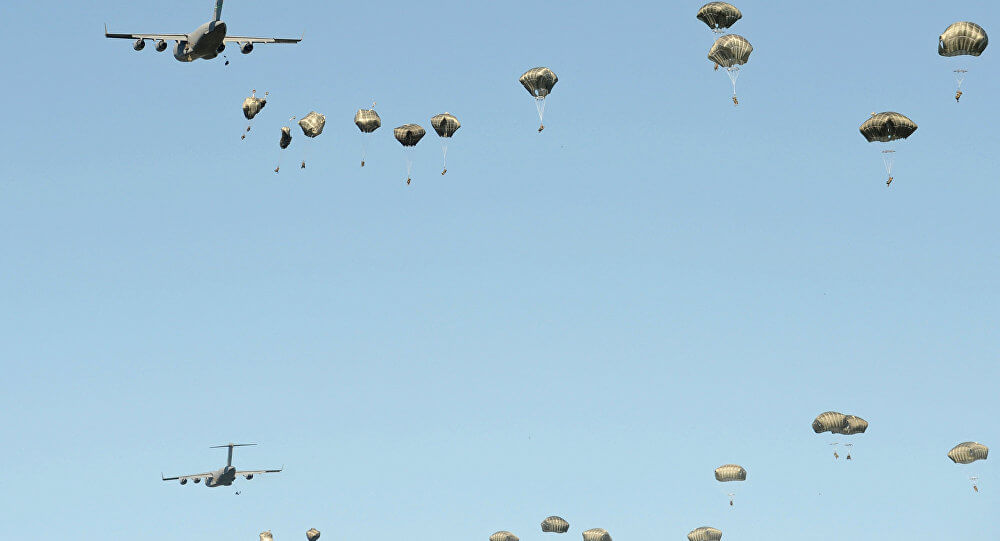By Tino Jacobson
30 September 2017
Following the recent general election, the upgrading of Germany’s Armed Forces is advancing rapidly. On Monday, Germany ordered five new A330 MRTT transport and tanker aircraft from Airbus, which are to be financed together with Norway through the OCCAR Joint Cooperation Organization. The order is part of a European offensive to renew the air forces of European NATO members.
The new aircraft will replace four old Luftwaffe (German Air Force) A310s and will be based at Cologne-Wahn, where the defence ministry air transport corps is based. The parliamentary Budget Committee had already released finances of €1.4 billion before the summer break for their procurement.
Shortly before the election, the defence ministry had arranged another billion-euro arms deal. Five “Braunschweig” K130 class corvettes are to be purchased for about €2 billion. The warships are to be completed by 2025.
The ships are to be armed with fully automatic naval guns and two fully automatic 27mm calibre turret guns, as well as two anti-aircraft rocket batteries. In addition, there are sea-to-sea guided missile systems, the possibility of mine laying and technology to disrupt enemy communications. The vessels can also be equipped with “marine drones” to carry out reconnaissance and surveillance.
Armin Schmidt-Franke, vice president of the Federal Office of Equipment, Information Technology of the Bundeswehr, said: “We are enabling the German navy to fulfil its increased commitments within the alliance with boats that have proved their worth in numerous assignments.”
The official Navy website says of the corvettes’ procurement: “This type of vessel makes possible worldwide deployment and complements the existing capabilities of the high-speed patrol boats and frigates. Corvettes are optimal for tasks in naval warfare, especially in bordering seas and coastal waters.”
The latest acquisitions are part of a comprehensive armaments program over the coming years, whose dimensions recall the massive rearming of the Wehrmacht (Hitler’s Armed Forces) in the 1930s, and are to prepare Germany for war.
At present, the Ministry of Defence is working on an upgrade plan based on the so-called “provisional conceptual guidelines for the future capability profile of the Bundeswehr,” presented by the responsible department head in the ministry, Lieutenant General Erhard Bühler.
Accordingly, Germany’s military is to “grow strongly in the areas of the army, air force and navy … in order to meet the new requirements,” as reported by the German Bundeswehr Association (DBwV) on its website. This concerns ensuring a “full defence capability on land, water, air, outer space and cyberspace.”
Specifically, the Luftwaffe should “be able to lead a multinational alliance,” which can fly up to 350 reconnaissance and combat missions every day. The air forces would have to be able to “maintain air superiority over Germany and, together with their allies, ensure superiority over an operational area.”
As well as the new tank and transport aircraft, Tornado jets and CH-53 transport helicopters will be replaced. In addition, drones, C-130 Hercules transporters and heavy transport helicopters are to be purchased. The stated objective of the measures is for the Luftwaffe “to take over protection of land forces from the air as early as 2021.”
Similar growth is planned for the other military forces. For the navy, “At least 15 ships and boats will be ready for operation at the same time.” To this end, six tenders, four frigates and mine defence units would have to be replaced in the coming years, and additional war ships procured. The navy should also “be enabled to conduct naval battles from the air.”
The largest restructuring is planned for the army. “In future, three fully equipped divisions with eight to ten brigades should be available, which are to be fully operational within three months,” writes DBwV. The necessary staff—a division usually consists of about 10,000 to 30,000 soldiers—is to follow with “the increased involvement of reservists.”
The DBwV’s summary of the planned armament of the tank fleet reads like preparation for a new land war in Europe.
At the centre of the demands for more military hardware is the Boxer armoured fighting vehicle. There are 200 units already at the disposal of the army, and 130 more were approved. “But that is not enough by far, internal calculations assume that a three-fold amount is required—at least. Higher numbers of the new Puma armoured personnel carriers, as well as Franco-German cooperation in the area of artillery systems are under discussion.”
